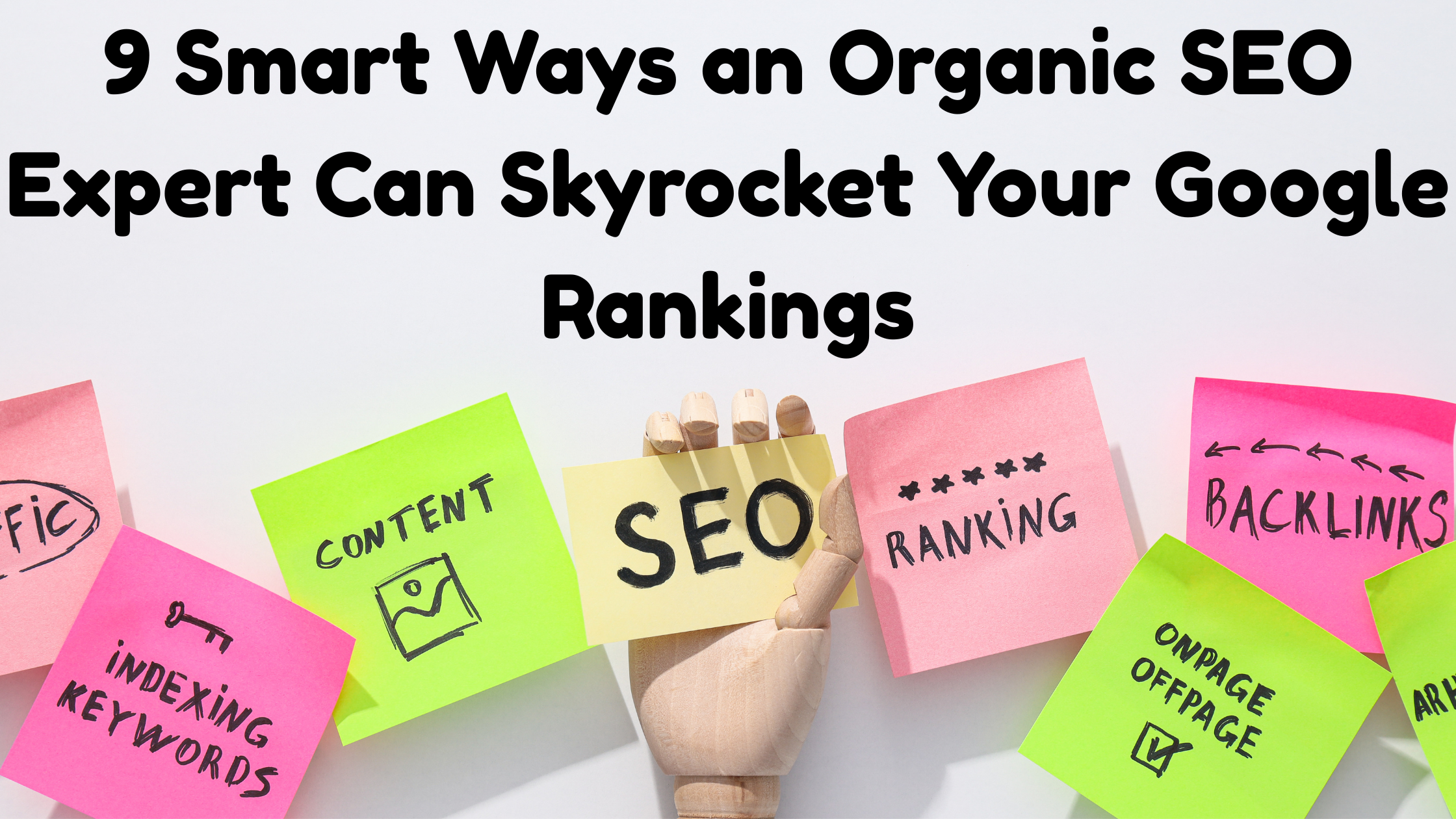If you’ve ever wondered why your competitors keep appearing at the top of Google search results while your business is buried on page three, the answer is rarely luck. Behind those top spots lies strategy, discipline, and a sharp understanding of how search engines work. Today, we peel back the curtain on nine smart, field-tested strategies that can transform how your business is discovered online.
This isn’t theory. It’s about practical, data-backed moves that successful brands are already using. Think of it as an inside look—without the smoke and mirrors—into how businesses consistently outpace rivals in digital visibility.
1. Start With a Solid Technical Foundation
Ranking higher on Google doesn’t begin with flashy content or clever keywords. It starts with infrastructure. Imagine building a skyscraper on unstable ground—it will collapse no matter how elegant the design.
Your website is no different. Technical SEO ensures your site is crawlable, indexable, and fast. Search engines don’t rank what they can’t read. Clean URL structures, mobile responsiveness, logical site architecture, and HTTPS security are non-negotiables. Slow load times? Broken links? Duplicate pages? Each of these is like a “do not enter” sign for Google bots.
Think of technical SEO as the quiet backstage crew of a theater production: unseen by the audience but essential for the show’s success.
2. Craft Content That Earns Authority
If Google is the world’s most powerful librarian, then content is your collection of books. The better the quality, the more likely your work is to be recommended. But here’s the catch—quantity without quality is useless.
The most successful businesses create authoritative content that genuinely answers questions, solves problems, and provides insights. This isn’t about stuffing keywords but offering a perspective that makes your website worth bookmarking. Data-driven reports, case studies, and practical guides perform exceptionally well because they earn trust.
Google rewards relevance and depth. The algorithm favors content that demonstrates real expertise, not vague fluff dressed up in buzzwords.
3. Master the Art of On-Page Optimization
On-page SEO is where the science meets the subtle art of persuasion. Titles, meta descriptions, and headers aren’t just technical boxes to tick—they’re the shop window of your brand.
Think of your title tags as front-page headlines. Would you click them? Do they tell the reader exactly what to expect? Meta descriptions act like teasers, convincing users to choose your link over another. Alt text on images not only makes your site accessible but also gives search engines additional context.
The businesses that win here are the ones that treat every page element as a chance to engage both Google and humans alike.
4. Earn Trust Through High-Quality Backlinks
In the digital world, a backlink is the equivalent of a glowing recommendation. When credible sites link back to you, it signals to Google that your content is trustworthy and relevant. But here’s where many falter: not all backlinks are created equal.
A handful of links from respected, authoritative domains can outperform hundreds of low-quality ones. Think trade publications, respected blogs, or industry associations—sources that matter in your field. Earning these links requires effort: publishing original research, thought leadership articles, or collaborating with industry voices.
It’s not about building links for the sake of numbers; it’s about cultivating a reputation that others want to reference.
5. Leverage Local SEO for Global Impact
Even if your business operates internationally, local SEO is a force multiplier. Google increasingly favors businesses with strong local footprints—accurate business listings, consistent NAP (Name, Address, Phone), and optimized Google Business Profiles.
For service-based companies, this can be the difference between appearing in the “local 3-pack” or vanishing into obscurity. Local reviews also feed directly into your visibility. Think of them as modern-day word of mouth, but with algorithmic weight.
A global brand without local roots looks less authentic. Google knows this—and so does your audience.
6. Use Analytics as Your Compass
Too many businesses treat SEO like a game of darts played blindfolded. They publish content, build links, and cross their fingers. But the leaders in this space track everything.
Google Analytics and Search Console aren’t just dashboards—they’re compasses. They tell you which keywords bring traffic, which pages convert, and where users drop off. They reveal whether your bounce rates suggest disinterest or if your mobile users are being underserved.
Data turns SEO from guesswork into strategy. Ignore it, and you’re flying without instruments.
7. Prioritize User Experience Above All
Here’s a truth often overlooked: Google doesn’t just serve users—it protects them. If your website frustrates visitors, you can expect rankings to suffer.
User experience (UX) goes beyond design. It’s about clarity, speed, navigation, and even tone. Is your content scannable? Are call-to-action buttons obvious? Does your site work seamlessly on a smartphone during a subway commute?
The signals Google measures—dwell time, click-through rates, pogo-sticking—are all proxies for user satisfaction. A great UX isn’t an add-on; it’s central to SEO success.
8. Stay Ahead With Emerging Search Trends
Search behavior evolves constantly. Ten years ago, voice search was a novelty; today, it’s mainstream. AI-driven search, video snippets, and visual search are already shaping results.
The businesses that thrive are the ones that anticipate these shifts rather than scramble to adapt. Structured data, for example, makes your content eligible for rich snippets and voice responses. Short, conversational answers rank higher for smart assistants. Video transcripts improve visibility in blended search results.
Keeping pace with these trends isn’t optional—it’s survival.
9. Build a Sustainable Long-Term Strategy
Here’s the uncomfortable truth: SEO is not instant. It doesn’t deliver overnight wins. But it does deliver compounding returns.
The brands dominating today didn’t just optimize last week. They’ve spent years building authority, refining strategies, and adapting to algorithm changes. Treat SEO like a marathon, not a sprint.
This is where leadership comes in. Business owners who commit resources, patience, and consistent effort reap the rewards of enduring visibility and trust. Those who chase shortcuts find themselves penalized or forgotten.
Long-term strategy isn’t glamorous, but it’s what separates flashes in the pan from lasting success stories.
Conclusion
The path to higher rankings isn’t mysterious—it’s methodical. From technical foundations to content authority, backlinks, local optimization, and data-driven insights, these nine strategies aren’t tricks. They’re disciplines that reward businesses willing to invest in them.
In a digital world where visibility translates directly into credibility, ignoring SEO is no longer an option. To compete seriously, you need guidance, patience, and the right expertise. The difference between stagnation and growth often comes down to whether you enlist the steady hand of an organic seo expert who knows how to navigate this terrain.
FAQs
Q1. How long does it take to see results from SEO?
Typically, noticeable improvements appear within three to six months, but significant growth often requires sustained effort over a year or more.
Q2. Is SEO better than paid advertising?
SEO and paid ads serve different purposes. Paid ads deliver quick visibility but stop once you stop paying. SEO builds long-term, compounding visibility that continues to deliver value.
Q3. What kind of businesses benefit most from SEO?
Every business with an online presence benefits—from local service providers to global e-commerce giants. The strategies differ, but the principles remain universal.
Q4. Can I handle SEO in-house, or should I hire an expert?
Basic SEO can be managed in-house, but achieving competitive rankings usually requires professional expertise, ongoing monitoring, and technical skills.
Q5. What’s the biggest mistake businesses make with SEO?
Chasing quick wins—like buying low-quality backlinks or overstuffing keywords—often backfires. Sustainable SEO is built on trust, relevance, and consistency.



